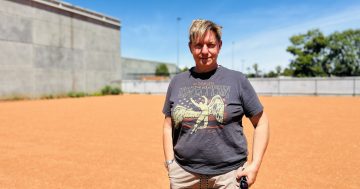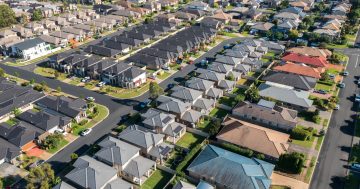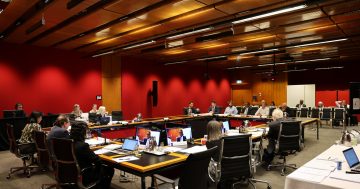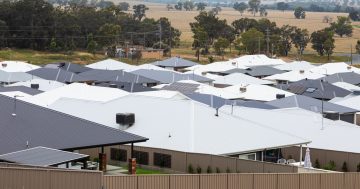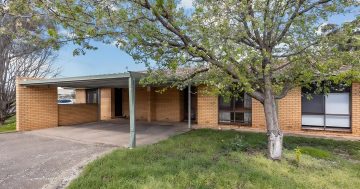
Real estate agent Nathan Thomas outside a former backpacker hostel that’s being sold. Photo: Oliver Jacques.
Riverina businesses need to recruit hundreds of new workers from outside the area to fill chronic skill and labour shortages, according to a recent ABC Four Corners investigation centred on Griffith.
But even if employers are able to find willing staff, they face one major obstacle. Where will the newcomers live?
Nathan Thomas, owner of Griffith’s Soul Property Agents, said he’d never seen such a scarcity of available housing in the 20 years he’d been in real estate.
“We have got people every day that are sharing their crisis in accommodation, and we struggle to help them as there aren’t any houses for rent … there’s not enough land available, there are not enough tradies. It’s unfortunate, Griffith would be moving ahead a lot faster, but we have run out of accommodation.”
According to the website realestateinvestar, Griffith’s rental vacancies sit at less than one per cent. While the latest Australian Bureau of Statistics Census data reveals there are almost 8000 private dwellings in the town, only 37 properties are available to rent – just six of those cost less than $300 a week.
“If you look at the data, rental vacancies in Griffith have been less than two per cent for the last five years,” Mr Thomas said. He predicted the looming housing crisis back in 2017, when developers were complaining about land shortages.
Leeton and Narrandera are even worse – with rental vacancy rates sitting below 0.5 per cent. The situation in Wagga is only marginally better. The rental vacancy rate sits at about 2 per cent, there are just 146 properties available to rent, only 24 of which cost less than $300 a week.
“We are actually having businesses reach out to us directly and many of them are looking at purchasing [houses]. To be able to progress with their business plans, some of them are having to look at moving into the real estate market to guarantee accommodation, particularly for trained workers … we’ve had everyone from dentists, optometrists, fabrication, we are regularly contacted by HR departments desperately seeking accommodation,” Mr Thomas said.
Four Corners reported Griffith’s biggest employer, chicken producers Baiada, are trying to bring 200 new staff into Griffith, while McDonalds are looking at bringing in 50 more. But a lack of housing is inhibiting recruitment.
The National Council of Social Services (NCOSS) recently commissioned research which estimates the housing shortage will cost the NSW economy $322 million each year through lost productivity and workforce participation.
NCOSS CEO Joanna Quilty called for urgent action.
“The past two years of major disruptions brought by fires, floods and the pandemic have exposed the underlying failures of housing policy in NSW and across Australia,” Ms Quilty said.
“It is a disgrace that in Australia, a place that was once considered the ‘Lucky Country’, we have soaring rates of housing stress and homelessness while cost of living pressures continue to mount.
“The issue is particularly dire in regional NSW, as the pandemic changed how many of us live and work, and city-dwellers moved to the regions to take advantage of flexible working approaches.”
Those trying to escape the rental market and buy their first home also face an uphill battle. Griffith house purchase prices have increased by an average of 64.2 per cent over the past five years, according to data from Domain’s latest quarterly house price report. Wagga house prices have risen 50 per cent since 2017.
Mr Thomas says a range of factors have coincided to exacerbate the housing crisis recently – including COVID-19, floods, skyrocketing costs of building materials, delays in approval processes and a shortage of tradies.
NCOSS has urged the NSW Government to set a target of building 5000 new social housing dwellings each year to address the housing shortage.









